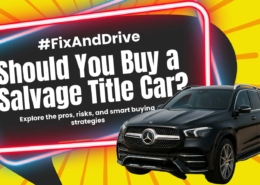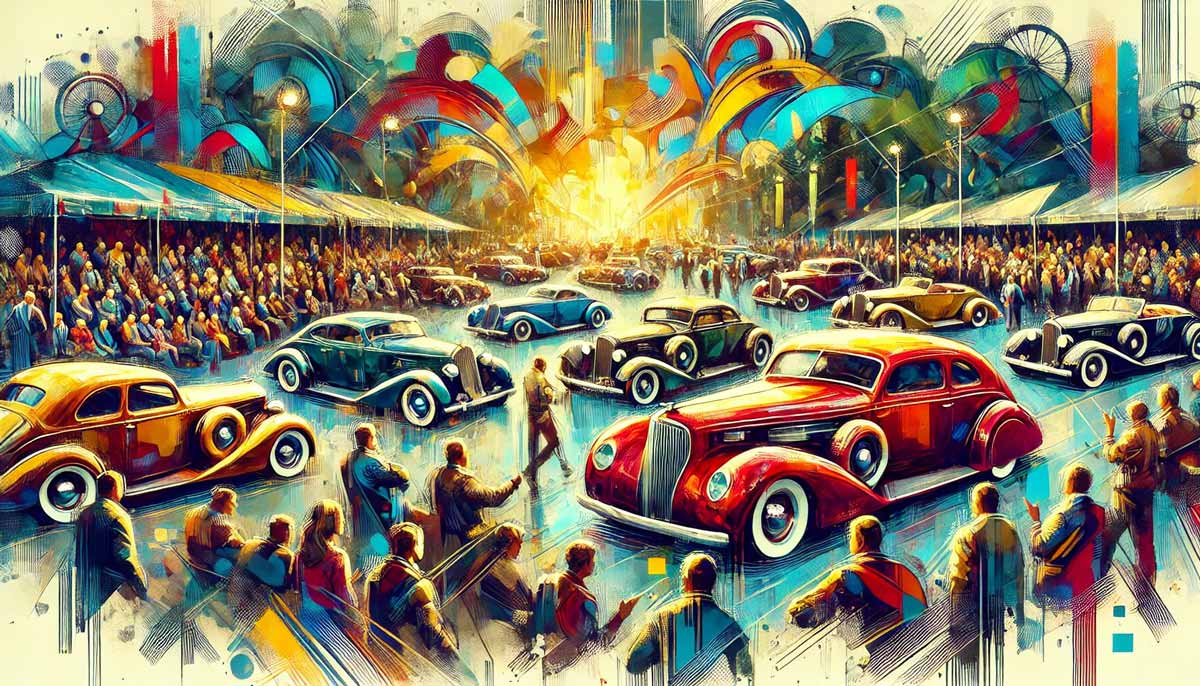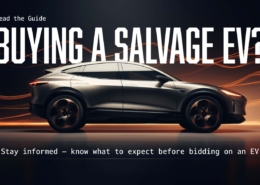 https://auction.ridesafely.com/images/2020/02/salvage-title-car-banner-pros-risks-strategies.jpg
865
1440
RideSafely
/images/2025/01/ridesafely-logo.svg
RideSafely2025-07-04 13:00:552025-07-11 20:49:15Buying a Salvage Title Car: Smart Move or Risky Decision?
https://auction.ridesafely.com/images/2020/02/salvage-title-car-banner-pros-risks-strategies.jpg
865
1440
RideSafely
/images/2025/01/ridesafely-logo.svg
RideSafely2025-07-04 13:00:552025-07-11 20:49:15Buying a Salvage Title Car: Smart Move or Risky Decision?For enthusiasts passionate about automotive restoration, finding the right vintage car is both a challenge and a thrill. Whether your interest lies in classic Mustangs, timeless Alfa Romeos, or another iconic model, the satisfaction of restoring an old vehicle to its former splendor is unmatched. While modern car dealerships typically showcase newer models, and private sales can be unpredictable, there’s a reliable source still brimming with potential: salvage vehicle auctions.
Understanding Salvage Auctions
Salvage auctions are specialized events where vehicles with salvage titles are sold. These cars have been declared total losses by insurance companies due to significant damage from accidents or other incidents. Despite this, they offer a unique opportunity for restoration enthusiasts. The insurance companies sell these vehicles to recover part of their financial outlay, making salvage auctions a treasure trove for restoration projects.
Why Choose Salvage Auctions for Vintage Car Restoration?
Salvage auctions are ideal for several reasons:
- Diverse Selection: Salvage auctions provide access to a wide variety of vehicles, increasing your chances of finding the perfect project car that captures your heart and meets your restoration criteria.
- Range of Damage: The vehicles available range from those with minor cosmetic damage to ones needing complete overhauls. This variety allows restorers to pick projects that match their skill level and restoration goals. Beginners might opt for cars with less extensive damage, while experienced individuals might take on more challenging rebuilds.
For more detailed insights into efficiently participating in these auctions, consider reading Master Salvage Car Auctions: Buy Efficiently with RideSafely.
Cost Expectations at Salvage Auctions
Pricing at salvage auctions typically reflects the extent of the damage. Cars with minor damage come at a slightly lower cost, whereas those with significant issues offer greater savings. This pricing structure often allows buyers to restore the vehicle and sell it for a profit, making salvage auctions not only a hobbyist’s playground but also a potential financial boon.
Is a Salvage Auction Right for You?
Salvage auctions aren’t suited for everyone. If you prefer a modern, ready-to-drive vehicle, this might not be your best option. However, if you’re enthusiastic about bringing a vintage car back to life and are prepared to invest time and effort into restoration, salvage auctions could be the perfect starting point for your next project.
In essence, salvage auctions offer a unique avenue for finding and restoring vintage cars, blending the joy of restoration with the excitement of uncovering hidden gems. Whether it’s a hobby or a potential profit-making venture, these auctions provide the resources needed to pursue your passion for classic automobiles.
Legal and Insurance Considerations
When buying a vehicle with a salvage title, it’s crucial to understand the legal and insurance implications. For comprehensive guidance on insuring your restored vehicle, refer to Guide to Insuring Salvage and Rebuilt Title Vehicles. This article provides essential information to help you navigate the complexities of insuring a salvage or rebuilt title vehicle.
Navigating Your Purchase at a Salvage Auction
Participating in a salvage auction requires some know-how to ensure you make a wise purchase. Here’s how to navigate these auctions effectively:
- Research: Before attending an auction, do your homework. Research the types of vehicles available and understand their typical issues. Many auction houses list their inventory online ahead of the auction, providing an opportunity to pre-select potential buys.
- Inspection: If possible, visit the auction site to inspect the vehicles on your shortlist. Check for the extent of damage and evaluate the potential restoration needs. This step is crucial as it helps you estimate the cost and effort required to restore the vehicle.
- Set a Budget: Determine how much you are willing to spend before you start bidding. Remember to factor in the cost of repairs, parts, and potentially long restoration periods. Setting a strict budget helps prevent overspending on impulse buys.
- Bidding Strategy: Be strategic about bidding. Decide in advance the maximum amount you are willing to pay for a vehicle and stick to it during the auction. It’s easy to get caught up in the heat of bidding wars, so having a clear limit helps maintain discipline.
Potential Challenges and Rewards
Restoring a vehicle from a salvage auction is not without its challenges. The extent of damage can sometimes be greater than it appears, leading to unforeseen complications and costs. However, overcoming these challenges can be incredibly rewarding. Successfully restoring a vintage car provides immense satisfaction and a deep sense of accomplishment. Additionally, there’s the potential for financial reward if you decide to sell the restored vehicle.
Before making a purchase, it’s essential to understand the financial implications and risks involved. For further reading on whether this investment is right for you, see Is Buying a Salvage Car Worth Your Money? Uncover the Truth!.
Conclusion
Salvage auctions represent a valuable resource for car restoration enthusiasts, offering access to a range of vintage vehicles at potentially low prices. By understanding what to expect and how to prepare, you can take full advantage of these auctions to find and restore a classic car, making it a worthy addition to any collection or a profitable resale opportunity. Whether for personal satisfaction or economic gain, the world of salvage auctions opens up a plethora of possibilities for the dedicated restorer.
FAQs on Vintage Car Restoration at Salvage Auctions
What is a salvage auction?
A salvage auction is a sale event where vehicles with salvage titles are auctioned. These vehicles have been declared total losses by insurance companies due to significant damage from accidents or other incidents. Salvage auctions offer a unique opportunity to purchase these vehicles for restoration or parts.
How do I find salvage auctions near me?
To find salvage auctions in your area, start by searching online for local auction houses that specialize in salvage vehicles. Websites like RideSafely, Copart, and IAAI list upcoming auctions and available inventory, providing details about the location and timing of these events.
What should I look for when choosing a vintage car to restore?
When selecting a vintage car at a salvage auction, consider the extent of damage, availability of replacement parts, your restoration skills, and the vehicle’s potential value after restoration. It’s advisable to opt for models that are popular among collectors due to their higher resale value and part availability.
Can I inspect the vehicles before bidding at a salvage auction?
Yes, many salvage auctions allow for pre-auction inspections. However, a dealer license is required to inspect vehicles at dealer-only auctions. Potential buyers can visit the auction site to check the condition of the vehicles. It is highly recommended to take advantage of this opportunity to assess any damage and estimate potential restoration costs.
How much should I budget for purchasing and restoring a salvage vehicle?
Your budget should include the purchase price of the vehicle, estimated repair costs, and any additional expenses such as transportation and parts. Setting a realistic budget that covers all these aspects is crucial to ensure that the restoration process is financially manageable.
Are there any legal considerations I should be aware of when buying a salvage title vehicle?
Yes, vehicles with salvage titles come with certain legal considerations. Depending on your location, there may be specific regulations regarding the inspection, registration, and insurance of salvage title vehicles. It’s important to check with your local DMV for information on the legal requirements for restoring and driving a salvage title vehicle.
What are the risks involved in buying a vehicle from a salvage auction?
The primary risks include the potential for hidden damage, difficulties in sourcing rare parts for older models, and possible higher costs than initially estimated. It’s essential to conduct thorough research and set realistic expectations before bidding.
Can I sell a vehicle that I’ve restored from a salvage auction?
Yes, you can sell a vehicle restored from a salvage title. However, it must be disclosed as a rebuilt salvage vehicle. The resale value may be lower compared to non-salvage vehicles, but a well-executed restoration can still attract buyers looking for a classic car at a reduced price.






Leave a Reply
Want to join the discussion?Feel free to contribute!